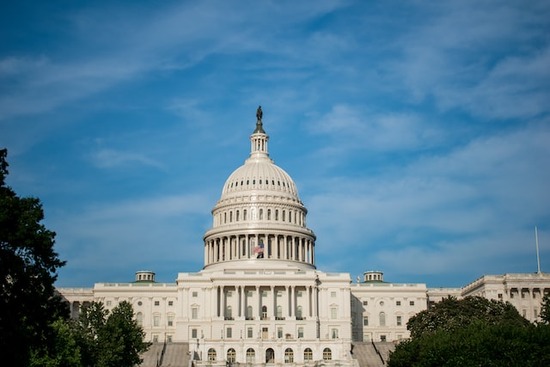Why do Adventists Emphasize Religious Liberty?
Adventists see religious liberty as an essential human right. After all, God endowed humanity with freedom of choice from the very beginning. So we believe it’s best for governments to also support their citizens’ rights to worship based on their convictions.
This isn’t an ideal we simply agree with—we actively support it. The Seventh-day Adventist world church headquarters has an entire department focused on promoting and defending religious liberty.
And Adventists certainly aren’t alone in this. Religious liberty has been a global concern for centuries, especially for the early Christian church. People faced imprisonment, torture, or even lost their lives to cruel governments or state churches—simply because they refused to surrender their religious beliefs. And that just shouldn’t be.
So it’s no surprise that numerous faith groups uphold religious liberty. But what are the specific ways Adventists have supported religious freedom throughout the years?
Let’s go through:
- The full definition of religious liberty
- Why religious liberty is important to Adventists
- All about the PARL department
- What the Bible says about religious liberty
- How we can uphold religious liberty today
It’s important to note that according to the Bible, this challenge will never go away. In fact, it warns of a time when religious liberty will be further endangered than ever before (Daniel 7:25).
All the more reason to be aware of this hot topic! So let’s get started.
What is religious liberty?
 Religious liberty is defined as the “freedom of religious opinion and worship.”1 And to get a good grasp of its full meaning and implications, let’s take a look at some history.
Religious liberty is defined as the “freedom of religious opinion and worship.”1 And to get a good grasp of its full meaning and implications, let’s take a look at some history.
Even before it fully became a country, the United States frequently confronted matters of religious liberty. In fact, many of its founding citizens came to America to flee the oppressive state churches of their home countries.2 But despite their own desire for freedom, many of them forced other colonists to convert to their religion.3
Eventually, many Americans wanted the nation to declare Protestant Christianity as its national religion. But leaders soon realized this could empower Protestants to attack other religious groups.4
So in 1789, James Madison created the Bill of Rights, complete with 10 amendments.5 The First Amendment of the U.S. Constitution included the right to freedom of religion.6
It reads:
“Congress shall make no law respecting an establishment of religion, or prohibiting the free exercise thereof…”7
This law ensured that the government wouldn’t intervene with anyone’s religious rights.
Of course, other countries have also made laws about religious liberty. One notable instance was the Edict of Nantes.8 This law gave religious freedom to protestants in France during a time when Protestants and Catholics were in constant conflict.
So even when we look at just a few pieces of history, we can see how foundational something like religious liberty is when it comes to establishing a civil society that values individual freedoms. And Adventists want to do everything we can to defend this concept.
Why is religious liberty important to Adventists?
 Adventists believe religious liberty is crucial for numerous reasons. But first and foremost, it’s rooted in the fact that God created humanity with freedom of choice. With love and sincerity being the priorities, He never wanted anyone to be forced into worship.
Adventists believe religious liberty is crucial for numerous reasons. But first and foremost, it’s rooted in the fact that God created humanity with freedom of choice. With love and sincerity being the priorities, He never wanted anyone to be forced into worship.
It is indeed true that in the Garden of Eden, exercising free will resulted in catastrophic consequences (Genesis 3:16-24). That’s how our world became closely acquainted with sin, death, and suffering.
There are those out there who fear religious liberty for similar reasons. They’re afraid that by allowing citizens to choose who and how they worship, which would be the basis for their value system, it might make society harder to control or unify.
Amid that fear, it’s often forgotten that if people are forced to follow someone, it’s highly likely they’re not truly following them at all.
God wants a genuine relationship with all of us. For that to happen, He wants us to choose Him. Even if there’s a risk we won’t.
But for religious and government officials that strive for power and control, this concept is a struggle.
The Roman government persecuted the early Christians for their beliefs.9
They ordered them to worship their gods instead of allowing them to worship differently. If they were caught worshipping God they were captured, tortured, or killed.
Later on, the Romans adopted Christianity, but their intolerance toward those of opposing religions did not change. They slaughtered Protestant Christians for their beliefs during the Spanish Inquisition.
There are countless examples of religious persecution throughout history. From conquistadors targeting Native Americans to the Church of England threatening the Puritans.
Most of these violent and oppressive acts were supposedly done in God’s name. What a sickening way to take His name in vain.
That’s why Adventists wholeheartedly emphasize the importance of religious liberty. Worship of the God we love shouldn’t be built on fear, but on faith and love (1 John 4:18).
We see this kind of freedom as everyone’s right.10 If we want to be able to worship God freely, as we’re so convicted, it’s only fair that we want the same opportunity for others.
But what happens when someone is not permitted to worship freely?
An Adventist organization called PARL steps in to ensure they receive fair treatment.
What is PARL?
PARL stands for Public Affairs and Religious Liberty.11 It was created by the Adventist Church to support and defend religious liberty, and it’s thought to be one of the largest Christian efforts to preserve religious freedom.12
So how does PARL accomplish this?
They help by:13
- Participating in international efforts to advocate for the freedom of religion (ex: Geneva Convention)
- Holding special events to discuss the importance of religious liberty with government officials
- Spreading awareness, such as the production and distribution of Liberty Magazine
- Connecting church members with legal counsel or advice if their religious freedom is not being respected by their employer, educational institution, care provider, etc.
And on several occasions, PARL intervened in Congress’ attempts to pass religious laws.
 For example, in the 1880s and 1920s, Congress tried to pass laws that would forbid most types of business to take place on Sundays.14 This was because most Christians considered Sunday a holy day, and a time to encourage church attendance.
For example, in the 1880s and 1920s, Congress tried to pass laws that would forbid most types of business to take place on Sundays.14 This was because most Christians considered Sunday a holy day, and a time to encourage church attendance.
Naturally, because Adventists celebrate the original seventh-day Sabbath as God’s holy day of rest, this could make business more difficult for them, and it could single them out as a group of people worshiping on a different day than the one the government recognized.
But more than anything, if the government appeared to favor one religion or worship practice over another, that would be a violation of the Bill of Rights. And it would make religious liberty in general more difficult to promote.
Fortunately, PARL was able to produce enough signatures to help that legislation get rejected.15
Additionally, PARL has frequently helped Adventists defend their right to honor the Sabbath by abstaining from work and making it a day of worship. They protect employees if their employers insist they work on Sabbath. They also provide opportunities for students to take exams on another day if tests are scheduled for Saturday.
All in all, PARL has been instrumental in maintaining religious freedom for Adventists, and for Christians in general, throughout the world.
Does the Bible support religious liberty?
Even when bringing up the idea of humanity’s freedom of choice, there are some who wonder if religious liberty is indeed a biblically-supported concept. After all, wasn’t the nation of Israel a theocracy? In other words, didn’t the Hebrews’ government require its citizens to worship God?
The answer is a bit complicated. It’s true that Israel was technically a church-state instituted by God. They were commanded to abstain from the pagan worship practices of the nations around them (Exodus 20:2-3)—some of which were outright harmful, perverse, or dangerous.16
Additionally, the Israelites were a nation already identified as believers (Joshua 24:16-21). And rather than enforcing worship to God on the rest of the world, they were to be a light to the nations around them (Isaiah 49:6).
Their main goal was to witness to others about God.
And the world is vastly different today. The world has grown much bigger than a collection of militaristic nations centered around one religion. Due to globalization, more countries are full of people who practice a variety of religions.
And now, instead of spreading the gospel through one nation, God has believers all over the world that lovingly seek to finish this work.
Ancient Israel was ultimately unsuccessful in witnessing to the nations around them. Because of this, Jesus opened the way for everyone, not just what we’d come to call the “children of Israel,” to help spread the gospel (Acts 18:4-6).
As we can find by reading the New Testament, God no longer has a special nation of followers. Instead, people from all over the world choose to serve Him.
It’s not the church’s job to police people, or to punish or condemn them in the name of God. Romans 14:5 encourages every individual to be “fully convinced in his own mind” (CSB). And 1 Corinthians 10:29 cautions against a person’s freedom being “judged by another person’s conscience” (CSB).
Instead, the commission to all believers is to share the gospel, make disciples, and open the door for the Holy Spirit to personally convict each person (Matthew 28:18-20). And it works out much better this way because God knows men’s hearts in a way we never can (1 Kings 8:39). He has no bias against them, He is only seeking their best interest, and He will never violate their freedom to choose their allegiance.
Jesus will never push anyone to accept Him. The Bible says that Jesus merely knocks, leaving it our choice to answer (Revelation 3:20).
How can we help support religious liberty today?
Much of the Bible addresses the issue of religious freedom. So what are the best ways we can apply these biblical principles to the concerns of today?
For one thing, we can see how God has cared for those whom He convicts to stand up for Him in the face of hostile unbelievers or oppressive governments. We can remember people like Daniel, Moses, Paul, and more.
And we can see an example of how to approach people who believe differently in the story of Jesus and the Samaritan woman. Even though she had different beliefs (John 4:20), Jesus approached her kindly. He did not focus on where He knew she was mistaken about things, and instead emphasized the promise of the gospel (John 4:1-26).
And as for specific ways to get involved in religious liberty efforts, many options are available:
- Stay aware of current events, so you can:
- Vote whenever given the chance
- Write letters to government officials
- Sign and share relevant petitions
- Support or volunteer for organizations that help defend religious liberty around the world
- Pray for our government’s leaders
- Become a Church Ambassador
- Report a religious liberty concern to PARL
- Subscribe to Liberty Magazine
But the most important way we can promote the love of God through religious liberty is to model this respect in our daily lives. We can take a genuine interest in every person we meet, listening to their stories and getting to know them. We can model mutual respect and show that God’s love doesn’t discriminate—He cares for everyone, whether they currently acknowledge Him as their Savior or not. So we should, too.
Jesus died for every human being in the name of freedom—namely, to free us from our sins. And He gives us the power to use our free will to make better choices, and to understand what we’re choosing against.
Although He paid a heavy price just for us to have the option of believing in Him, He is against forcing it on anyone. That would defeat the purpose of creating humanity with the ability to choose, so that we could learn to genuinely love.
So instead He waits patiently, gently asking us if we would like to accept His free gift of salvation.
Want to learn more about how the Bible talks about religious liberty, and its role in our world’s future?
- https://www.thefreedictionary.com/Religious+liberty. [↵]
- https://www.britannica.com/topic/Pilgrim-Fathers. [↵]
- “Religion and the Founding of the American Republic,” loc.gov, The Library of Congress, https://www.loc.gov/exhibits/religion/rel01-2.html. [↵]
- “On this day: James Madison introduces the Bill of Rights,” constitutioncenter.org, National Constitution Center, https://constitutioncenter.org/blog/on-this-day-james-m [↵]
- https://www.britannica.com/topic/Bill-of-Rights-United-States-Constitution. [↵]
- https://constitutioncenter.org/blog/on-this-day-james-madison-introduces-the-bill-of-rights. [↵]
- https://constitution.congress.gov/constitution/amendment-1/#:~:text=Congress%20shall%20make%20no%20law,for%20a%20redress%20of%20grievances. [↵]
- https://www.britannica.com/event/Edict-of-Nantes. [↵]
- https://www.britannica.com/topic/Christianity/Relations-between-Christianity-and-the-Roman-government-and-the-Hellenistic-culture.[↵]
- https://adventist.news/news/promoting-religious-liberty-around-the-world. [↵]
- https://www.adventistliberty.org/what-is-parl. [↵]
- https://www.adventistliberty.org/history [↵]
- https://www.adventistliberty.org/what-is-parl. [↵]
- https://www.adventistliberty.org/history. [↵]
- https://www.adventistliberty.org/history. [↵]
- Leviticus 18 & 20; Deuteronomy 12:30, 31; 2 Kings 21:6; 23:10 [↵]
Related Articles
Questions about Adventists? Ask here!
Find answers to your questions about Seventh-day Adventists
More Answers
The Health Benefits of Fresh Air You Should Know About
The Health Benefits of Fresh Air You Should Know About“When you can’t breathe, nothing else matters,” the American Lung Association tells us. And while that’s true, the kind of air you’re breathing will determine the health benefits you experience. Breathing fresh...
What Do Seventh-day Adventists Choose to Eat?
What Do Seventh-day Adventists Choose to Eat?Food blogs overwhelm the internet; food fads are all the rage; and copycat and healthy versions of food are the subject of many a get-together. Eating—and eating the best way—is a big deal. And everybody has a different...
10 Incredible Ways Sunlight Can Improve Your Health
10 Incredible Ways Sunlight Can Improve Your HealthAre you concerned about sunlight’s negative effects? You might be the one who lathers on the sunscreen and covers up when you go outside. Or maybe you avoid being outside as much as possible. You might be surprised,...
Why Is Water So Important?
Why Is Water So Important?We all know that water is a substance we can’t live without. It quenches our thirst and keeps us hydrated on the inside. And it’s necessary for hygiene and cleansing on the outside too. But did you know that the cleansing properties of water...
Ellen White’s Writings and the Adventist Health Message
Seventh-day Adventists are known for their emphasis on healthy living. And Ellen G. White was a significant influence in the development of this priority and practice among Adventists.
Health Clinics
Ellen White and Adventist Healthcare—Ahead of Their Time Medical care in the mid-1800s was primitive, to say the least. Basic concepts we take for granted—such as proper handwashing or recognizing the dangers of bloodletting—were nonexistent. And doctors often had...
What Did Ellen White Teach about Vegetarianism?
What Did Ellen White Teach about Vegetarianism?One thing you might have heard about Seventh-day Adventists is their emphasis on a vegetarian lifestyle. If you’re wondering why that is, it goes back to our church’s humble beginnings: As Adventists studied the Bible,...
How Ellen White’s Teachings Can Improve Your Health
How Ellen White’s Teachings Can Improve Your Health Healthcare in the nineteenth century was said to leave “more disease than it took away” with its use of bloodletting and “medicines” like mercury and arsenic.1 As people questioned these methods, new approaches...
Change Your Perspective on Life with These 5 Mindsets
5 Biblical Mindsets to Change Your Life for the Better Sometimes, life is just plain hard. There’s no way around it. So would thinking about things differently really change anything? Our perspective on life, and everything it throws at us, affects more than we’re...
Bible Promises for When You’re Worried or Fearful
Bible Promises for When You’re Worried or Fearful The Bible is full of beautiful promises that can comfort us in a variety of situations. They can give us hope when we are hopeless, make us feel grateful for God’s love, and comfort us when we’re grieving or suffering....
12 Practical Ways to Overcome Worry
12 Practical Ways to Overcome Worry DISCLAIMER: This content is for informational purposes only. It does not constitute any professional medical advice and is not intended as a substitute for professional mental health therapy. It’s easy to get stuck in a cycle of...
How the Bible Talks About Worry, Fear, and Anxiety
How the Bible Talks About Worry, Fear, and Anxiety Worry and fear are the ingredients of anxiety. It’s easy to see how the world isn’t perfect—and the anticipation of a bad event or experience (that may or may not even happen) can end up draining the peace and...
How to Calm Anxious Thoughts, Using the Bible
How to Calm Anxious Thoughts, Using the Bible You were expecting a phone call from your daughter half an hour ago, and she still hasn’t called. She’s also not answering your calls. You feel your heart thumping as your thoughts race: What if she’s been in a car...
What You Should Know About the Adventist Health Studies
What You Should Know About the Adventist Health StudiesYou may have heard that Seventh-day Adventists care about health. But what you may not know is that Adventists have been the subjects of long-term research into lifestyle and health. Since 1958, researchers from...
Benefits of Sunlight
Yes, There Are Health Benefits of SunlightDespite the bad reputation it’s gotten, sunlight is generally associated with positivity, as shown by songs like “You Are My Sunshine,” or phrases that refer to delightful people as having a “sunny disposition.” There’s a...
Why Your Body Needs Rest for Optimal Health
Why Your Body Needs Rest for Optimal HealthStruggling to think straight? Wondering why you can’t remember that important tidbit you heard earlier today? Feeling like your emotions are about to explode? These are just some of the symptoms that can reveal your need for...
The Seventh-day Adventist Diet: One of Our Key Longevity Secrets
The Seventh-day Adventist Diet: One of Our Key Longevity SecretsOats, avocados, lentils, tofu—probably not what you first think of in a standard American diet. But if you show up at the home of an Adventist, chances are you may be served one of these staples. Out of a...
Why You Need Fresh Air
Why You Need Fresh Air“When you can’t breathe, nothing else matters,” the American Lung Association tells us. We couldn’t agree more! Breathing in clean air is an essential part of caring for our bodies, which God has given us. Together with other health principles,...
Sabbath Meal
Everything You Need to Know About Sabbath MealsFor Seventh-day Adventists, sharing a Sabbath meal with friends and family is one of the most special and memorable parts of the Sabbath. That’s why we want to share with you all about Sabbath meals and why they’re such a...
Adventists and Healthy Living
Adventists and Healthy LivingWhat’s the Adventist “Health Message” All About? One thing Seventh-day Adventists are known for is their emphasis on living healthy lives. Since our bodies are living temples of the Holy Spirit (1 Corinthians 6:19, 20), we strive to stay...
Water’s Importance—Physical Benefits and Spiritual Applications
Water’s Importance—Physical Benefits and Spiritual Applications We all know that water is a substance we can’t live without. Not only does it quench our thirst and keep us hydrated from the inside, but it’s necessary for hygiene and cleansing on the outside as well....
How Important is a “Day of Rest?”
How Important is a “Day of Rest?” Why God Created a Day for Downtime by Martin Casper Do you ever experience the feeling of complete overload? Do you feel like the only way you can get ahead is by slamming it 24/7? I hear these types of comments more and more...
7 Reasons Why a Day of Rest is Important
7 Reasons Why a Day of Rest is ImportantWe live in a fast-paced world. It seems as if success is measured in how much you can do in a short amount of time. (Extra points for the service or product that is available 24/7). The idea that we will be more successful if we...
How do Adventists choose what to eat?
How do Adventists choose what to eat?Every day, parents go through the ritual of getting their kids to eat what is healthy and good while trying to steer them away from what can hinder the growth of their developing bodies. Nutritionists work with their clients to...
How Can I Have a Better Marriage?
Is it possible to have a happy marriage?
How do Adventists make movie and music choices?
How do Adventists make movie and music choices?Cinema has come a long way since the first clips of motion pictures came to light in 1878. As the decades rolled on, film and music producers have created rivers of movies and albums for the masses. Today, watching movies...
Why are many Adventists Vegetarian?
Why are many Adventists Vegetarian?The diet intended for man is outlined in Genesis 1:29, “And God said, ‘See, I have given you every herb that yields seed which is on the face of all the earth, and every tree whose fruit yields seed; to you it shall be for food.’”...
Didn’t find your answer? Ask us!
We understand your concern of having questions but not knowing who to ask—we’ve felt it ourselves. When you’re ready to learn more about Adventists, send us a question! We know a thing or two about Adventists.























